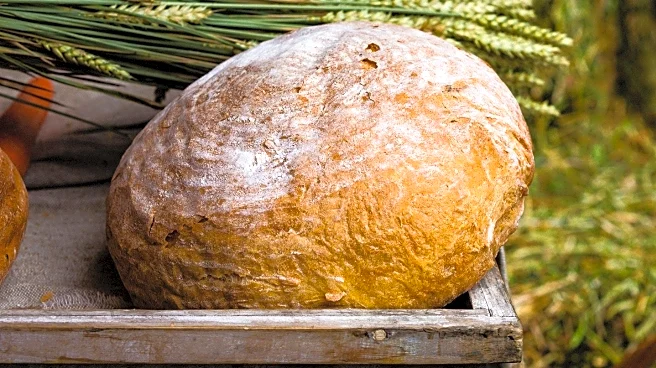What's Happening?
Seylou Bakery in Washington, D.C., is utilizing grains grown with traditional farming techniques to produce flavorful and nutritious bread. The bakery uses whole grains harvested from Mid-Atlantic farms
that practice crop rotation and avoid intensive tilling and chemical fertilizers. This approach results in unique products like sourdough whole-grain croissants and rye cookies. The bakery is part of a broader movement among bakers, brewers, and distillers seeking grains cultivated with sustainable practices to enhance taste and nutrition.
Why It's Important?
The adoption of regenerative farming practices by bakeries like Seylou is significant as it promotes environmental sustainability and supports local agriculture. By using grains grown in healthy soil, these businesses offer products that are not only tastier but also more nutritious. This trend encourages farmers to adopt sustainable practices, which can lead to healthier ecosystems and reduced pollution. Consumers benefit from higher-quality food, while farmers receive better compensation for their crops, fostering economic viability in agriculture.
What's Next?
As consumer demand for sustainably produced food grows, more bakeries and distilleries may adopt regenerative farming practices. This could lead to increased collaboration between farmers and food producers, further promoting environmental sustainability. The movement may also inspire research into the nutritional benefits of grains grown in healthy soil, potentially influencing public policy and agricultural standards.
Beyond the Headlines
The shift towards regenerative farming highlights ethical considerations in food production, emphasizing the importance of environmental stewardship and community support. It reflects a cultural shift towards valuing quality and sustainability over mass production, which could influence long-term changes in consumer behavior and industry practices.









